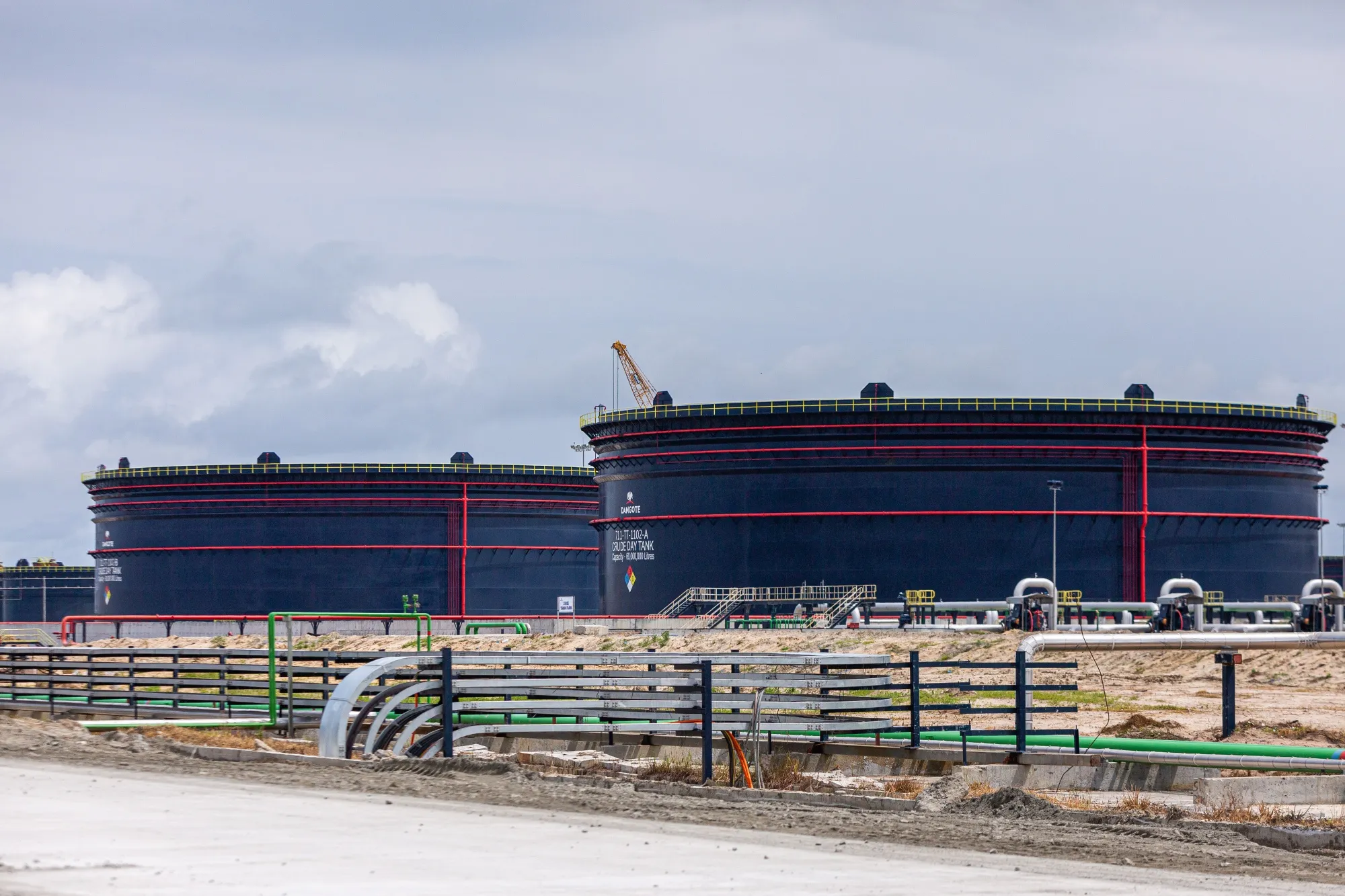Dangote Refinery's Influence On NNPC Petrol Prices

Table of Contents
Increased Domestic Refining Capacity & Reduced Reliance on Imports
Nigeria has long relied heavily on imported refined petroleum products, making it vulnerable to global price fluctuations and impacting NNPC petrol prices. This dependence has led to significant foreign exchange expenditure and considerable strain on the nation's economy. The Dangote Refinery, with its massive refining capacity of 650,000 barrels per day, represents a significant shift in this landscape. This substantial increase in domestic refining capacity promises to drastically reduce Nigeria's reliance on imports.
- Reduction in import bills for NNPC: A major reduction in imported fuel will directly translate to lower costs for the NNPC, impacting the price they set at the pump.
- Improved forex reserves for Nigeria: Less money spent on importing refined products means more foreign currency available for other crucial sectors of the Nigerian economy.
- Increased energy security for the nation: Reduced reliance on foreign suppliers enhances Nigeria's energy independence and resilience against global supply chain disruptions.
- Potential for price stabilization due to reduced vulnerability to global crude oil price fluctuations: Domestic refining reduces the impact of international market volatility on local fuel prices.
Impact on Competition and Market Dynamics
For years, the NNPC has held a near-monopoly in Nigeria's fuel market. The Dangote Refinery's entrance introduces a major private competitor, fundamentally altering the market dynamics. This increased competition has the potential to benefit consumers through several mechanisms.
- Increased competition leading to lower prices: A competitive market typically leads to price wars, benefiting consumers with lower petrol prices. The NNPC may be forced to adjust its pricing strategies to remain competitive.
- Improved quality of refined petroleum products: Competition often spurs improvements in product quality as companies strive to attract customers.
- Enhanced efficiency in the downstream sector: The pressure to compete will likely drive efficiency improvements across the entire downstream petroleum sector.
- Potential for new investment and job creation in the sector: The Dangote Refinery's success could attract further investment and create numerous jobs in related industries.
Government Policy and Regulatory Framework
Government policies play a crucial role in shaping NNPC petrol prices. Subsidy removal or deregulation policies, for example, would significantly impact the market, particularly with the introduction of the Dangote Refinery. The government's regulatory framework will be instrumental in determining the extent to which the refinery influences pricing.
- Impact of subsidy removal on consumer prices: Removing fuel subsidies could lead to higher prices initially, but could also make the market more responsive to supply and demand.
- The role of price control mechanisms: Government intervention through price controls might limit the immediate impact of the Dangote Refinery on prices, but could also stifle market efficiency.
- Potential for increased transparency in pricing: A more competitive market can foster greater transparency in fuel pricing, benefiting consumers and businesses.
- Government incentives to encourage private sector participation in refining: Government policies promoting private sector investment in refining are essential for sustained growth and competition in the sector.
Challenges and Uncertainties
While the Dangote Refinery holds immense promise, several challenges could hinder its full impact on NNPC petrol prices.
- Potential operational challenges at the refinery: Maintaining consistent and efficient operations at such a large-scale facility is crucial.
- Reliability of crude oil supply: A consistent supply of crude oil is essential for the refinery's continued operation.
- Effectiveness of distribution networks across Nigeria: Efficient distribution networks are crucial to get refined products to consumers nationwide.
- Unforeseen global economic factors affecting prices: Global economic shifts and unexpected events can still affect fuel prices, despite increased domestic refining capacity.
Conclusion
The Dangote Refinery's influence on NNPC petrol prices is a complex issue with both potential benefits and challenges. While increased domestic refining capacity promises reduced reliance on imports, lower prices, and enhanced energy security, several factors, including government policy, competition dynamics, and operational challenges, will shape the ultimate outcome. The interplay between these factors will determine the extent to which the Dangote Refinery truly revolutionizes the Nigerian fuel market. Continue monitoring the impact of the Dangote Refinery on the Nigerian fuel market and the subsequent effects on NNPC petrol prices. Stay informed about developments in the Nigerian petroleum industry to understand how Dangote Refinery's operations shape the future of fuel prices in Nigeria. Further research into the long-term effects of Dangote Refinery on NNPC petrol prices is encouraged.

Featured Posts
-
 10 Unmissable Film Noir Films A Critics Picks
May 10, 2025
10 Unmissable Film Noir Films A Critics Picks
May 10, 2025 -
 Wynne Evans Breaks Silence On Future After Strictly Come Dancing
May 10, 2025
Wynne Evans Breaks Silence On Future After Strictly Come Dancing
May 10, 2025 -
 Palantir And Nato A New Ai Revolution In The Public Sector
May 10, 2025
Palantir And Nato A New Ai Revolution In The Public Sector
May 10, 2025 -
 Data Breach Nhs Staff Accused Of Illegally Obtaining Records Of Nottingham Stabbing Victim
May 10, 2025
Data Breach Nhs Staff Accused Of Illegally Obtaining Records Of Nottingham Stabbing Victim
May 10, 2025 -
 Celebrity Stylist Elizabeth Stewart Designs Exclusive Line With Lilysilk
May 10, 2025
Celebrity Stylist Elizabeth Stewart Designs Exclusive Line With Lilysilk
May 10, 2025
